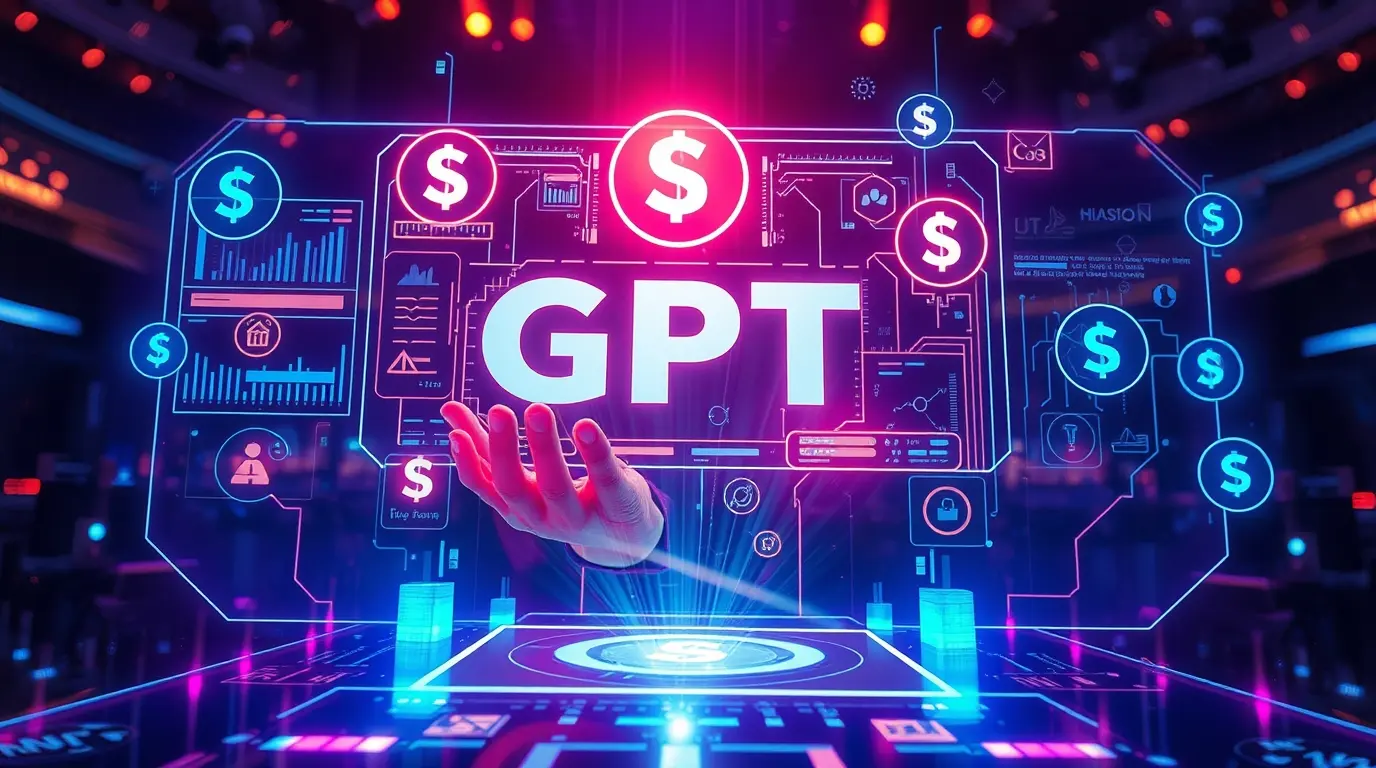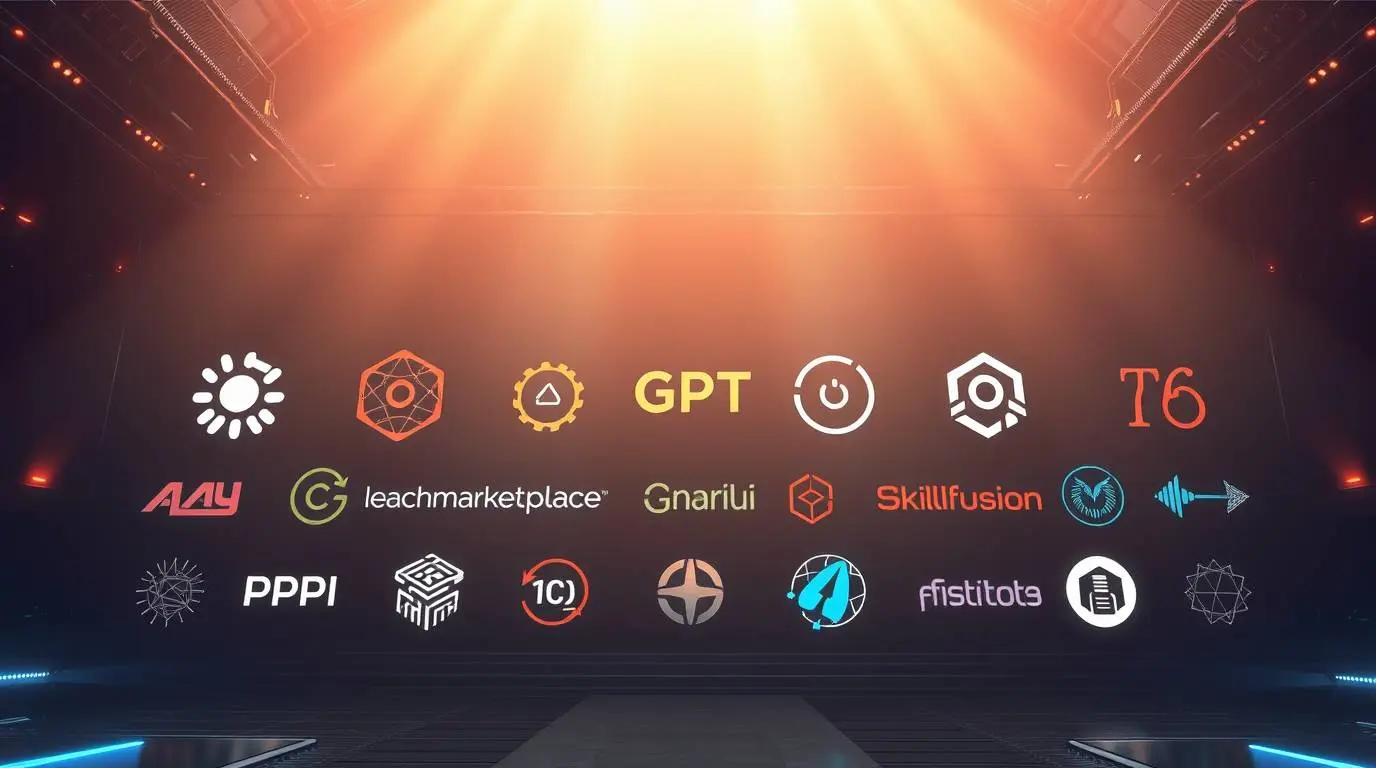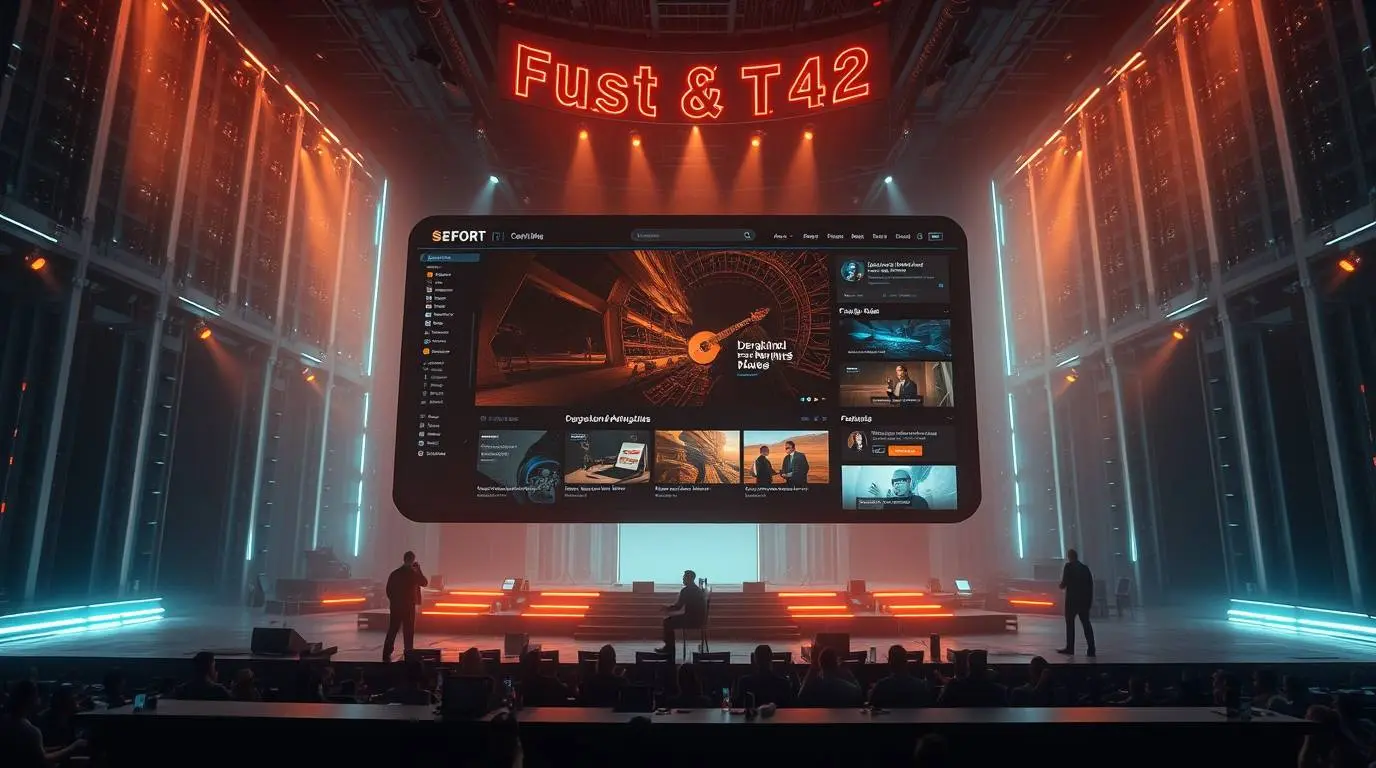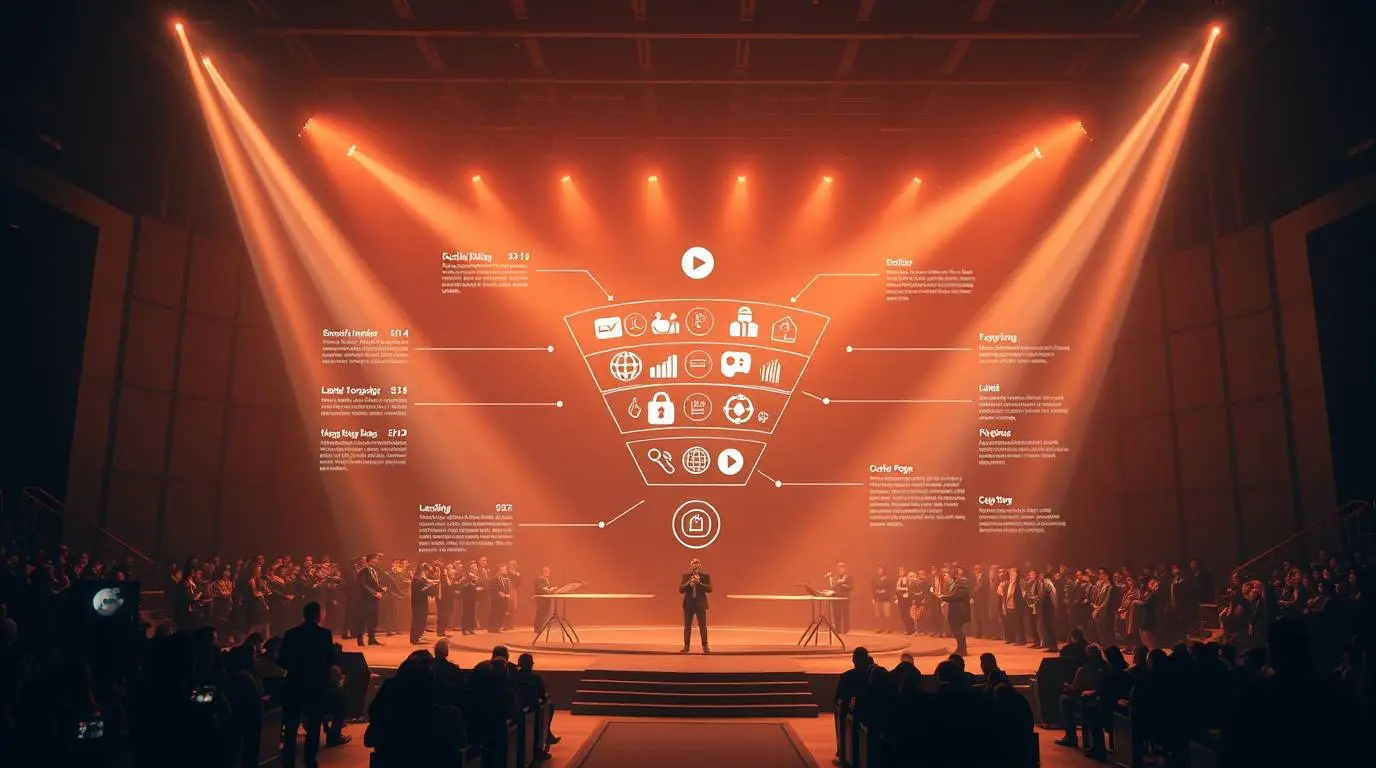Physical Address
304 North Cardinal St.
Dorchester Center, MA 02124
Physical Address
304 North Cardinal St.
Dorchester Center, MA 02124

Unlock the power of custom GPTs! This 2025 ultimate guide shows you how to create personalized AI assistants with no code, monetize them on OpenAI's GPT Store or third-party marketplaces, and build a profitable AI venture. From idea to income, start selling your GPTs today!
Have you ever wished you could build your own AI assistant that perfectly understands your business, answers exactly how you want, and—best of all—makes you money while you sleep? Welcome to the world of custom GPTs, where creating and selling your own AI tools has never been more accessible or profitable.
Back in 2023, I spent countless hours manually responding to the same customer questions over and over. Today, my custom GPT handles those interactions 24/7, generating an extra $2,300 monthly for my consulting business. And here’s the kicker—I built it with zero coding knowledge in a single afternoon.
In this guide, I’ll walk you through exactly how to create your own custom GPTs in 2025, the best platforms to sell them on, and proven strategies to turn your AI creations into genuine income streams. Whether you’re looking to automate your own business processes or create AI tools that others will happily pay for, you’re in the right place.

Custom GPTs are personalized AI assistants that you can create, customize, and potentially monetize without writing a single line of code. Think of them as specialized versions of ChatGPT that you’ve trained to excel at specific tasks.
A custom GPT differs from standard GPT models in several important ways:
| Standard GPT | Custom GPT |
|---|---|
| General-purpose knowledge | Specialized for specific tasks |
| Limited personalization | Highly customizable personality and responses |
| No access to your specific data | Can be trained on your documents and knowledge |
| Cannot use external tools | Can use tools and APIs you specify |
| One-size-fits-all approach | Tailored to specific use cases |
While standard GPTs like GPT-4o are incredibly powerful, custom GPTs can be fine-tuned to serve specific niches, solve particular problems, and showcase your unique expertise. This specialization is exactly what makes them valuable—and sellable.
OpenAI’s GPT Builder remains the easiest entry point for creating custom GPTs in 2025. This no-code tool lets you describe what you want your GPT to do in plain English, upload reference materials, and configure how your AI assistant will behave.
How to create your first GPT in 15 minutes:
“I was intimidated by the idea of creating my own AI, but OpenAI’s GPT Builder made it surprisingly simple,” shares Jamie Rodriguez, a virtual assistant who now sells specialized administrative GPTs. “The key is being very specific about what you want your GPT to do and providing good examples.”
Learn more about AI content creation tools for beginners
The OpenAI GPT Store has emerged as the primary marketplace for selling custom GPTs. After creating your GPT, you can list it in the store and earn revenue based on user engagement.
To maximize your earnings in the GPT Store:
The official store operates on a revenue-sharing model, where creators earn based on how much their GPT is used. While the exact formula is proprietary, GPTs that drive significant engagement can generate substantial income.
Discover more AI business ideas for 2025

Beyond the official OpenAI store, several third-party marketplaces have emerged that offer different monetization models and features.
Top GPT marketplaces in 2025 include:
Skillfusion AI Marketplace: Known for its creator-friendly policies with 100% commission to creators, this marketplace is ideal for specialized professional GPTs.
FastBots: Offers direct paywall features, allowing you to charge upfront for access to your GPT rather than relying on usage-based revenue sharing.
Opuna: Provides robust marketing tools and analytics to help your GPT stand out and maximize sales.
CustomGPT.ai: Focuses on industry-specific GPTs with specialized features for business applications.
Each platform has different fee structures and audience demographics, so research thoroughly before deciding where to sell your creations.
Check out these AI passive income strategies for 2025
One of the most profitable approaches is embedding your custom GPT directly on your own website. This strategy offers several advantages:
FastBots and Botpress are leading platforms for embedding GPTs on websites with built-in paywall functionality. This approach works particularly well for consultants, agencies, and service providers who can use their GPT as a front-end for their expertise.
“Embedding my legal assistant GPT on my firm’s website increased our lead generation by 340%,” reports Michael Chen, an immigration attorney. “Visitors get immediate answers to basic questions, which builds trust before they book a paid consultation.”
Explore AI marketing automation strategies
The most successful GPT creators focus on specific industries with unique challenges. By building GPTs that solve problems for particular professions or businesses, you can command premium prices.
Profitable industry niches for custom GPTs include:
For example, a GPT that helps real estate agents write compelling listing descriptions can save hours of work per property, making it an easy sell at $29/month or more.
According to a recent Forbes report, industry-specific AI solutions command 3-5x higher prices than general-purpose tools due to their specialized knowledge and immediate ROI.
Learn about AI affiliate marketing opportunities in 2025
Rather than selling your GPT as a standalone product, consider bundling it with your consulting or professional services. This approach positions your GPT as a value-added tool that enhances your human expertise rather than replacing it.
For example:
This strategy often commands higher overall prices while positioning you as an innovator in your field. It also creates a compelling upsell opportunity for existing clients.
Discover profitable AI freelance services for 2025

Content creation remains one of the most in-demand applications for custom GPTs. By developing specialized AI tools that generate particular types of content, you can tap into the massive market of businesses struggling to produce consistent, high-quality material.
Popular content-focused GPTs include:
Tools like Jasper AI and Copy.ai have demonstrated the massive demand for AI-powered content creation. By building more specialized versions tailored to specific audiences or content types, you can capture a piece of this growing market.
Check out these top AI SEO tools
Customer service automation represents another lucrative opportunity for GPT creators. Businesses are increasingly looking for AI solutions that can handle routine customer inquiries while maintaining a personalized, on-brand experience.
A well-designed customer support GPT can:
Platforms like Chatbase and Tidio AI provide specialized infrastructure for building, deploying, and monitoring customer service GPTs. According to Hubspot research, businesses using AI chatbots see an average 30% reduction in customer service costs while improving response times by 80%.
If you’ve developed expertise in crafting effective GPTs, consider selling templates that others can customize for their specific needs. This approach scales well because you create the product once and can sell it unlimited times.
Popular GPT template categories include:
Templates can be sold as digital products on platforms like Gumroad or your own website, typically priced between $27-$197 depending on complexity and potential value.
“I made over $43,000 in six months selling GPT templates to small business owners,” explains Taylor Washington, a digital entrepreneur. “Most buyers don’t want to learn all the nuances of prompt engineering—they just want something that works out of the box.”
Explore more AI passive income opportunities
For more technically inclined creators, integrating GPTs into business automation workflows presents a premium opportunity. By combining GPTs with platforms like Zapier AI, you can create end-to-end solutions that perform complex business processes automatically.
Examples of valuable GPT workflows:
According to Statista, the business process automation market is projected to reach $19.6 billion by 2026, with AI-powered solutions commanding the highest growth rates.
The education technology sector offers enormous potential for custom GPTs. From personalized tutors to study aids and curriculum development tools, AI assistants that enhance learning are in high demand.
Profitable education GPTs include:
Schools, tutoring companies, and individual students all represent potential customers for educational GPTs. With education technology spending projected to reach $404 billion by 2025, this sector offers substantial opportunities for GPT creators.
Learn about YouTube automation with AI
As multimodal AI capabilities advance, GPTs that can generate and manipulate visual content are becoming increasingly valuable. By leveraging tools like DALL-E integration, you can create specialized GPTs that produce images, designs, and visual assets.
Promising visual GPT applications include:
“My Etsy listing enhancer GPT generates professional-looking product images and descriptions for handmade sellers,” shares craft entrepreneur Lisa Garcia. “It’s generating $3,700 monthly in subscription revenue because it solves a specific pain point—making amateur photos look professional.”

A custom GPT is a personalized version of OpenAI’s GPT technology that you can configure to have specific knowledge, capabilities, and behaviors. Unlike using the standard ChatGPT, custom GPTs can be tailored to perform specialized tasks, have access to particular documents, and follow specific instructions you define.
No, you don’t need any coding skills to create a basic GPT. OpenAI’s GPT Builder uses a conversational interface where you simply describe what you want your GPT to do in plain English. For more advanced functionality, basic knowledge of APIs may be helpful but isn’t required.
Creating your own GPT involves several steps:
The process typically takes between 15 minutes and a few hours, depending on complexity.
Yes, there are multiple ways to monetize custom GPTs:
The most successful GPT creators often combine multiple monetization strategies.
You can sell custom GPTs through:
Each platform offers different benefits regarding audience reach, pricing control, and revenue share.
The best platforms for hosting and selling GPTs depend on your specific needs:
Many successful creators list their GPTs on multiple platforms to maximize exposure and sales.

Effective marketing strategies for custom GPTs include:
The most effective marketing focuses on concrete problems your GPT solves rather than its technical capabilities.
Common use cases for custom GPTs include:
The most successful GPTs typically focus on solving specific pain points rather than attempting to be general-purpose assistants.
Setting prices for custom GPTs depends on several factors:
Most successful GPTs follow a subscription model ranging from $9.99 to $49.99 monthly for consumer applications, while business-focused GPTs often command $99 to $499 monthly.
Yes, several legal considerations apply:
Consulting with a legal professional familiar with AI products is advisable for GPTs in regulated industries or handling sensitive information.
Yes, you can embed custom GPTs on your own website using services like FastBots, Botpress, or Chatbase. This approach gives you greater control over the user experience and monetization model. Website embedding is particularly effective for businesses that want to integrate AI capabilities directly into their existing digital presence.
| Feature | Standard GPT | Custom GPT |
|---|---|---|
| Knowledge base | General knowledge cutoff | Can include specific documents you provide |
| Personality | Generic, broad | Customized tone and behavior |
| Capabilities | General-purpose | Specialized for specific tasks |
| Tools access | Limited built-in tools | Can use custom tools and APIs |
| Monetization | N/A | Can be sold or monetized |
| Use restrictions | Basic usage guidelines | Can have custom usage parameters |
Custom GPTs allow you to create purpose-built AI assistants that reflect your unique knowledge and approach.
To update your GPT after launch:
Regular updates based on user feedback are crucial for maintaining a competitive and useful GPT. Many successful creators update their GPTs at least monthly.
You can customize your GPT using:
When using any data, ensure you have the appropriate rights and permissions, especially for proprietary or copyrighted material.
Tracking methods vary by platform:
For comprehensive tracking, consider creating custom user onboarding flows that capture user information and usage patterns.

Creating and selling custom GPTs represents one of the most accessible entry points into the booming AI economy. With no coding required and multiple monetization paths available, the barrier to entry has never been lower.
The key to success lies in specialization—identifying specific problems your GPT can solve better than existing alternatives, whether they’re human-powered or competing AI tools. By focusing on delivering concrete value to a well-defined audience, you can build GPTs that users are genuinely willing to pay for.
As you begin your journey as a GPT creator, remember that the field is evolving rapidly. Stay curious, experiment with different approaches, and don’t be afraid to iterate based on user feedback. The most successful GPT entrepreneurs view their creations as products that require ongoing refinement rather than one-and-done projects.
Ready to start building your own AI business? Explore more AI business ideas for 2025 and join the thousands of entrepreneurs already generating income through custom GPTs.
What specific GPT are you thinking of creating? Drop a comment below—I’d love to hear your ideas and help troubleshoot any challenges you’re facing!